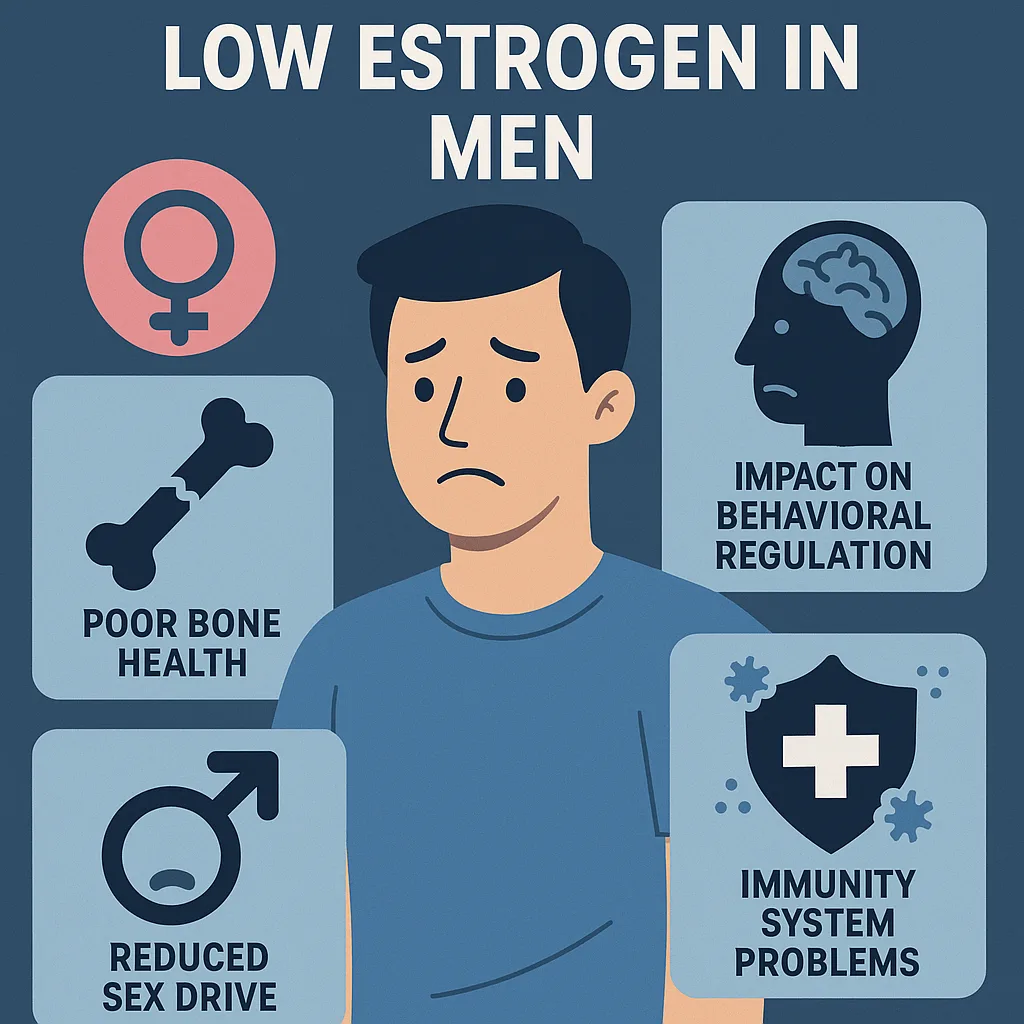Estrogen, often thought of as a primary female hormone, plays a crucial role in men's health too. Maintaining a balanced level of estrogen is essential, as both excessively low and high levels can lead to a range of health issues. This article explores the impact of estrogen imbalance in men and discusses potential treatment options.
The Dangers of Low Estrogen in Men
While some estrogen is necessary, insufficient levels can have significant consequences:
Poor Bone Health: Estrogen contributes to bone density in men. Low levels can lead to weaker bones, increasing the risk of osteoporosis and fractures.
Impact on Behavioral Regulation: Estrogen influences mood and cognitive functions. Imbalances can affect emotional stability and overall behavioral regulation.
Reduced Sex Drive: Estrogen, alongside testosterone, plays a role in male libido. Low estrogen can contribute to a decreased sex drive.
Immunity System Problems: Estrogen has modulatory effects on the immune system, and low levels may lead to a compromised immune response.
Receptor Sensitivity Problems: Estrogen receptors are present throughout the male body. Low estrogen can lead to issues with the proper functioning of these receptors, affecting various bodily processes.
The Risks Associated with High Estrogen Levels in Men
Conversely, an excess of estrogen in men can also be detrimental, leading to a cluster of health problems:
Gynecomastia (Enlarged Male Breasts): One of the most noticeable symptoms of high estrogen is the growth of male breast tissue. Estrogen stimulates breast tissue development, and elevated levels can lead to gynecomastia.
Diabetes: High estrogen levels have been linked to an increased risk of developing type 2 diabetes.
Cardiovascular Issues: Elevated estrogen can increase the risk of blood clots and, in severe cases, contribute to the risk of stroke.
Certain Cancers: Studies suggest a correlation between high estrogen levels and an increased risk of specific cancers, including breast and prostate cancer in men.
Infertility: Estrogen is partly responsible for healthy sperm production. When estrogen levels are high, sperm levels may fall, potentially leading to fertility issues.
Erectile Dysfunction (ED): Men with high levels of estrogen may experience difficulty achieving or maintaining an erection.
Treating Estrogen Imbalance
If you suspect an estrogen imbalance, it's crucial to consult a healthcare professional for proper diagnosis and treatment. Depending on the cause and severity of the imbalance, various medications can be prescribed.
For High Estrogen Levels, particularly those related to aromatization (conversion of testosterone to estrogen), doctors might prescribe Aromatase Inhibitors:
Anastrozole (Arimidex): This medication works by blocking the aromatase enzyme, thereby reducing estrogen production.
Exemestane (Aromasin): Another aromatase inhibitor that irreversibly deactivates the aromatase enzyme.
Letrozole (Femara): A potent aromatase inhibitor often used to significantly reduce estrogen levels.
In some cases, especially where the imbalance is related to the gonads, medications that stop the production of estrogen from the ovaries (in women, or sometimes used off-label in men to impact the HPG axis) or suppress hormonal activity might be considered. While the following are primarily used in women or for specific conditions, they impact hormone production:
Goserelin (Zoladex): A GnRH (gonadotropin-releasing hormone) agonist that, after an initial surge, downregulates GnRH receptors, leading to decreased estrogen (and testosterone) production.
Leuprolide (Lupron): Similar to goserelin, leuprolide is a GnRH agonist that suppresses the production of sex hormones.

